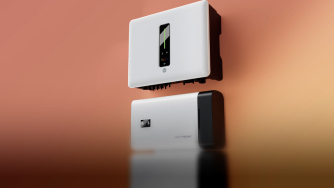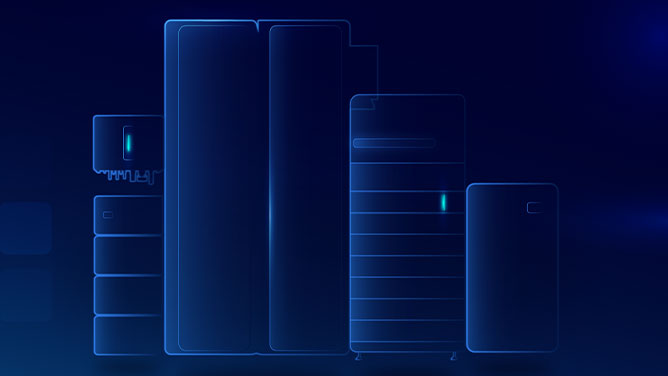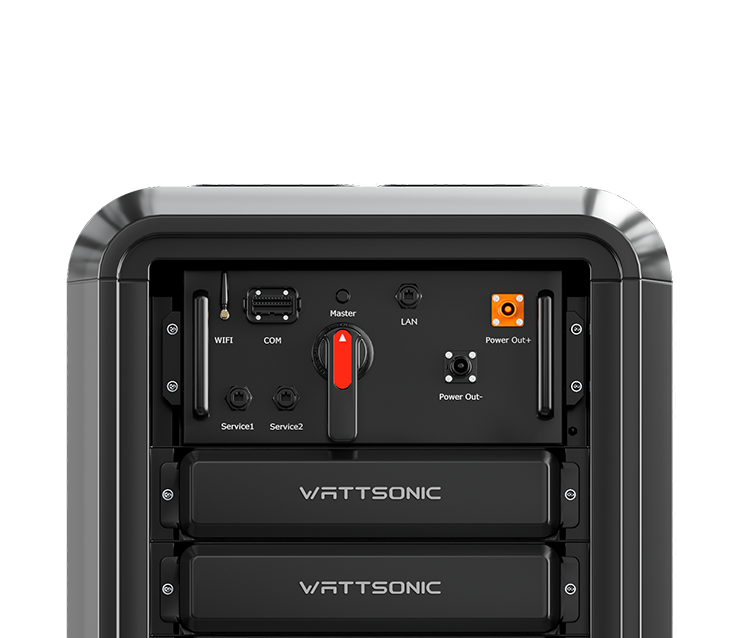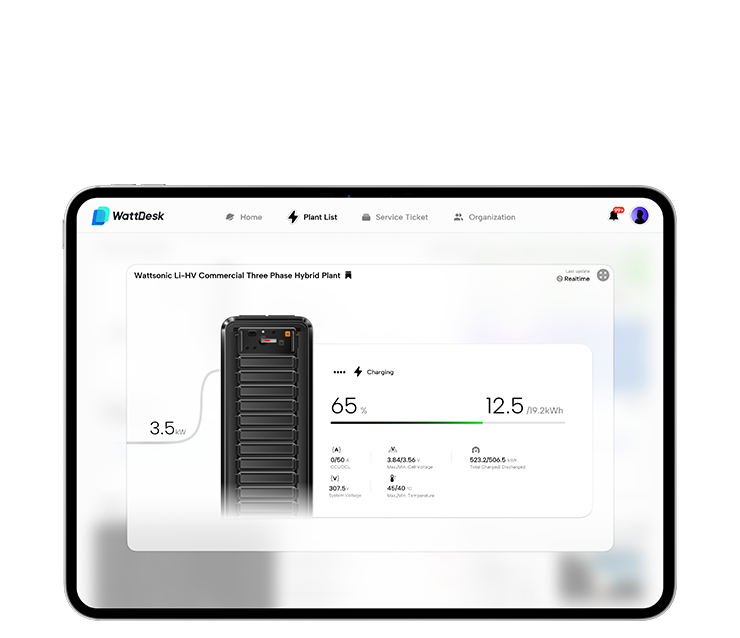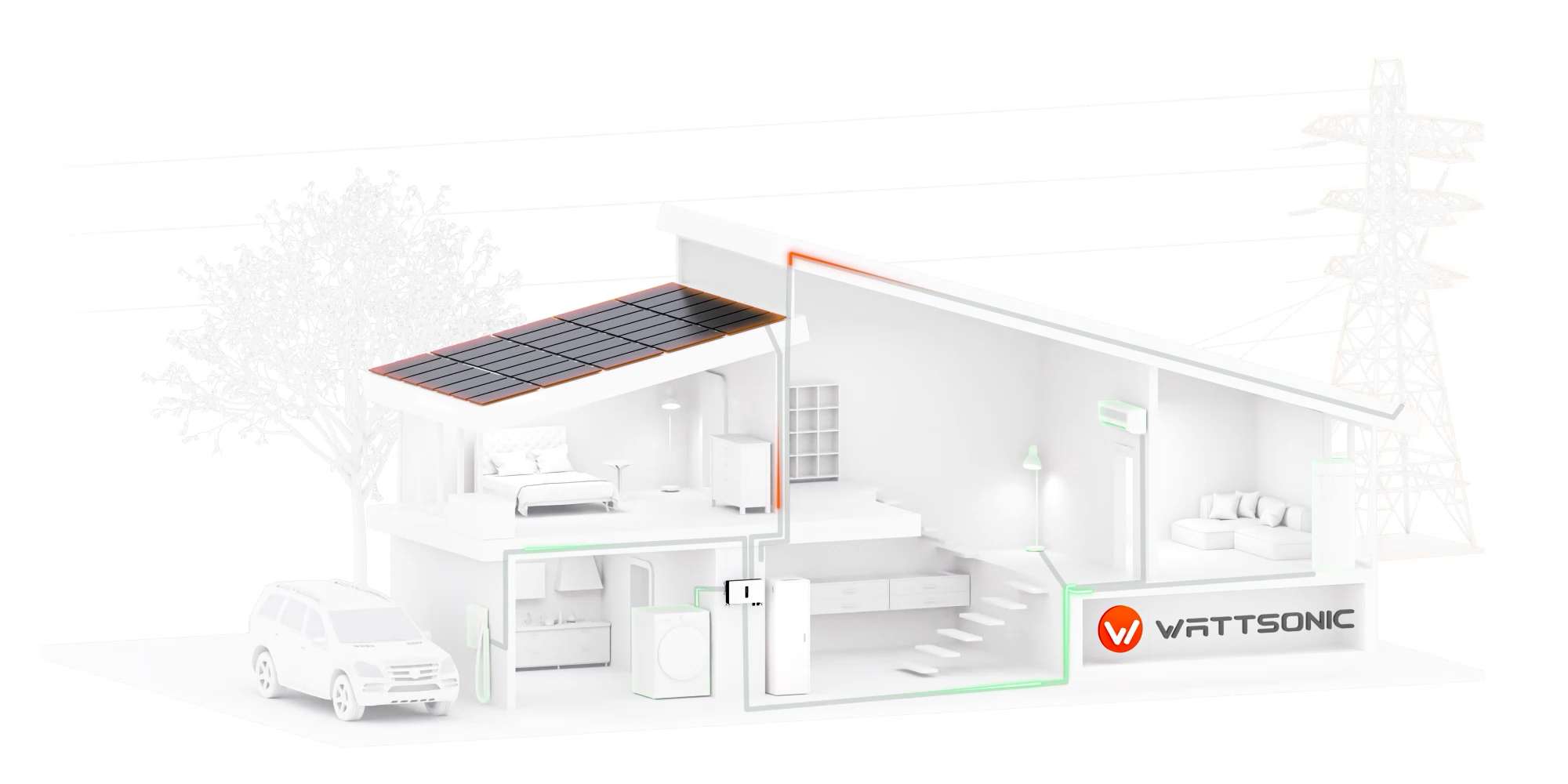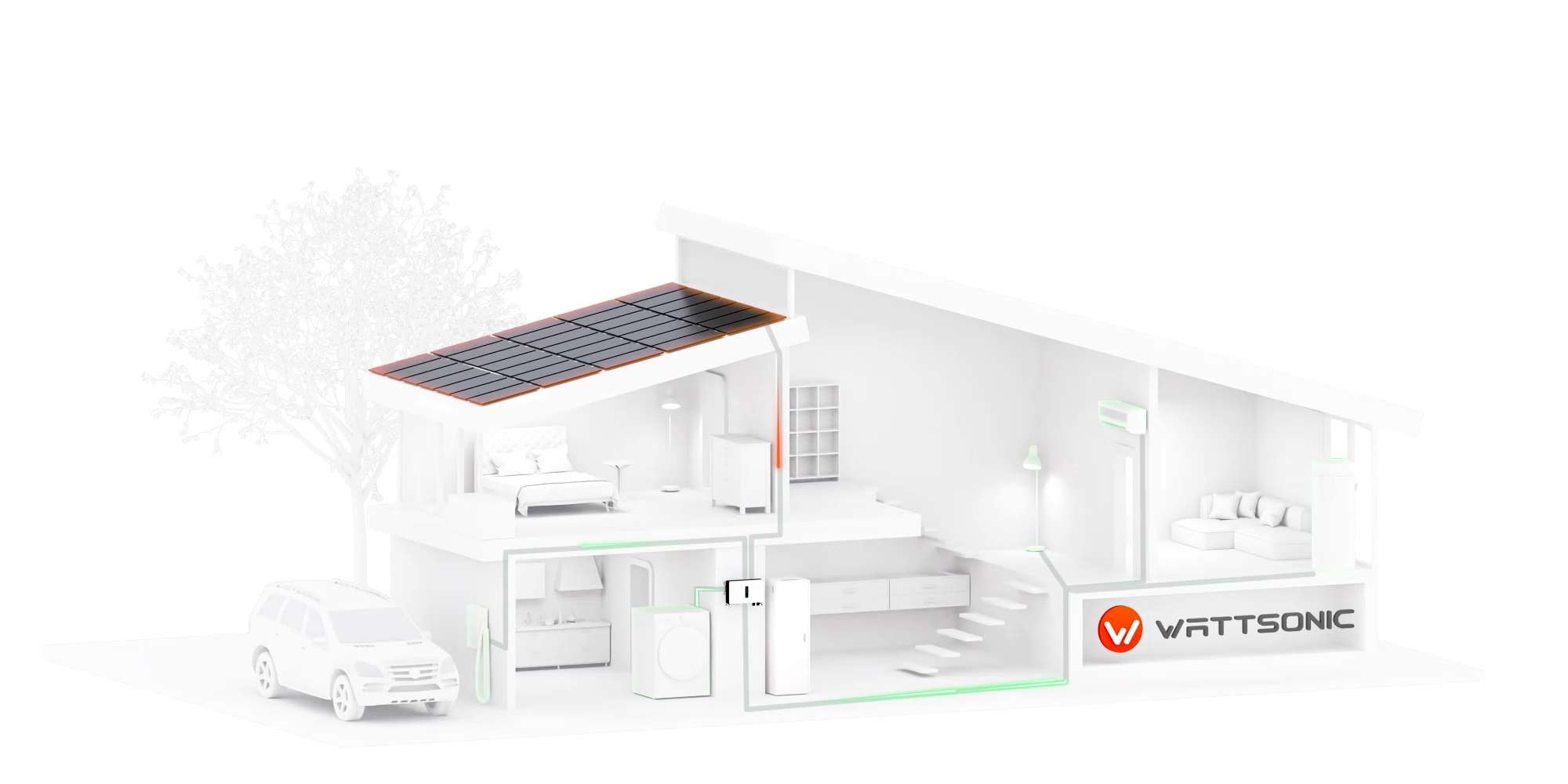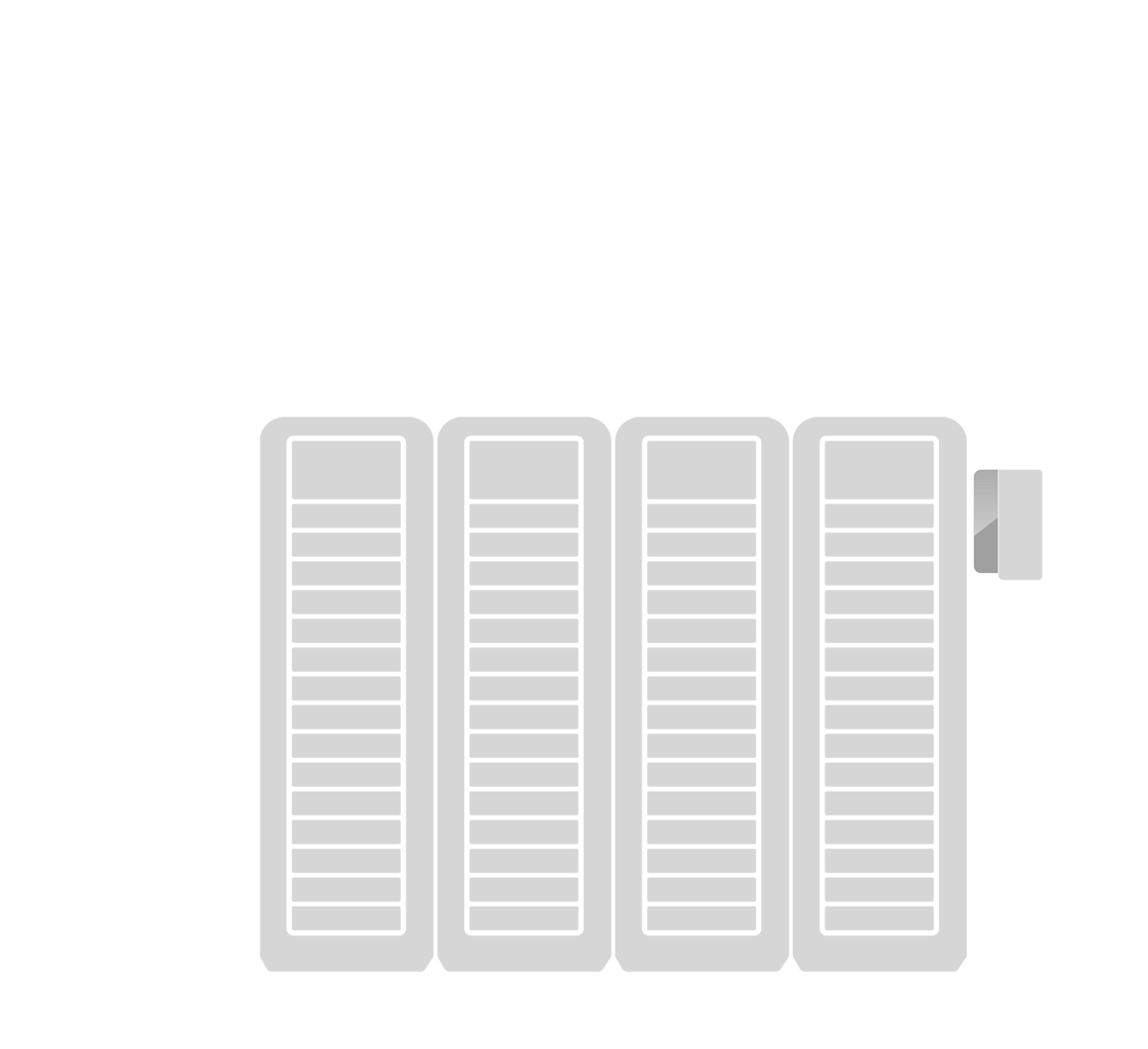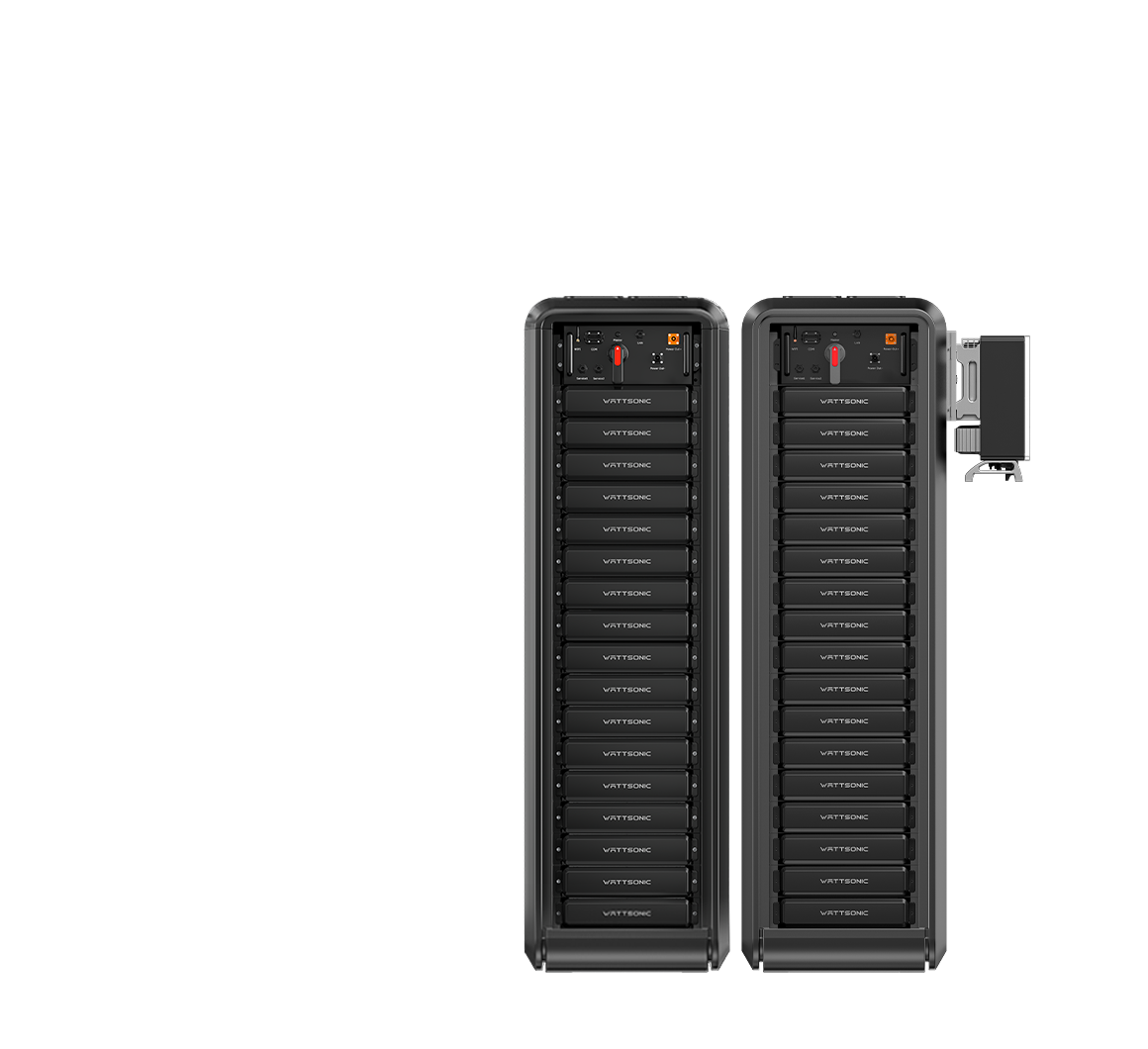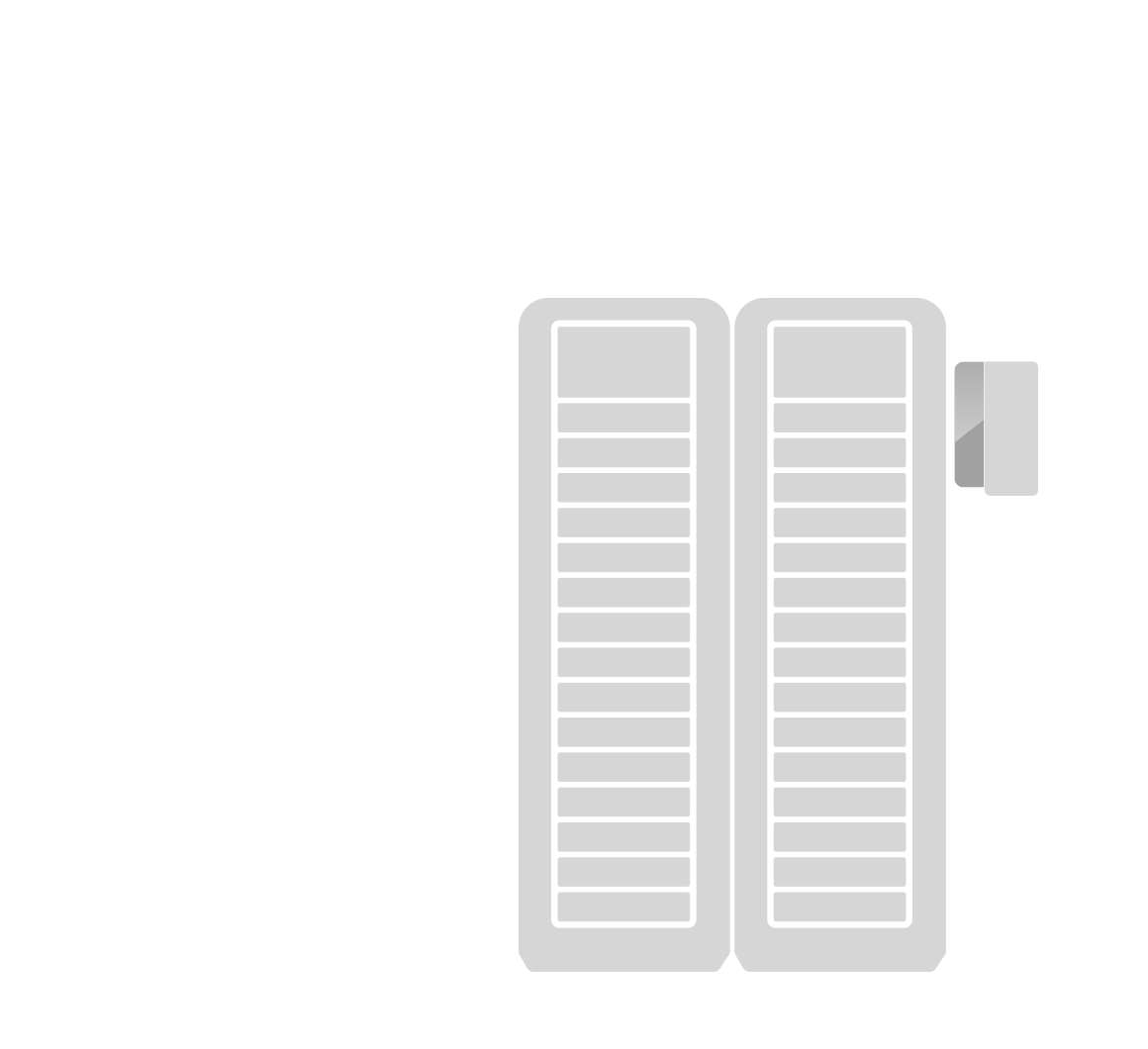-
FAQ
-
Download files


More than capable,
bring power to a new stage.
The new commercial solution offering proven running performance and reliability. Wattsonic can provide comprehensive commercial storage system with superior flexibility as well as quick and easy system commissioning convenience.

Wattsonic Li-HV Commercial Three Phase Hybrid is a compact energy storage solution for commercial or professional use. Packed with inverter, BMS and batteries together to realize an outstanding performance. Up to 326kWh(65.2kWh*5) per inverter can suit for various demand.
A well-matched system
no additional devices needed
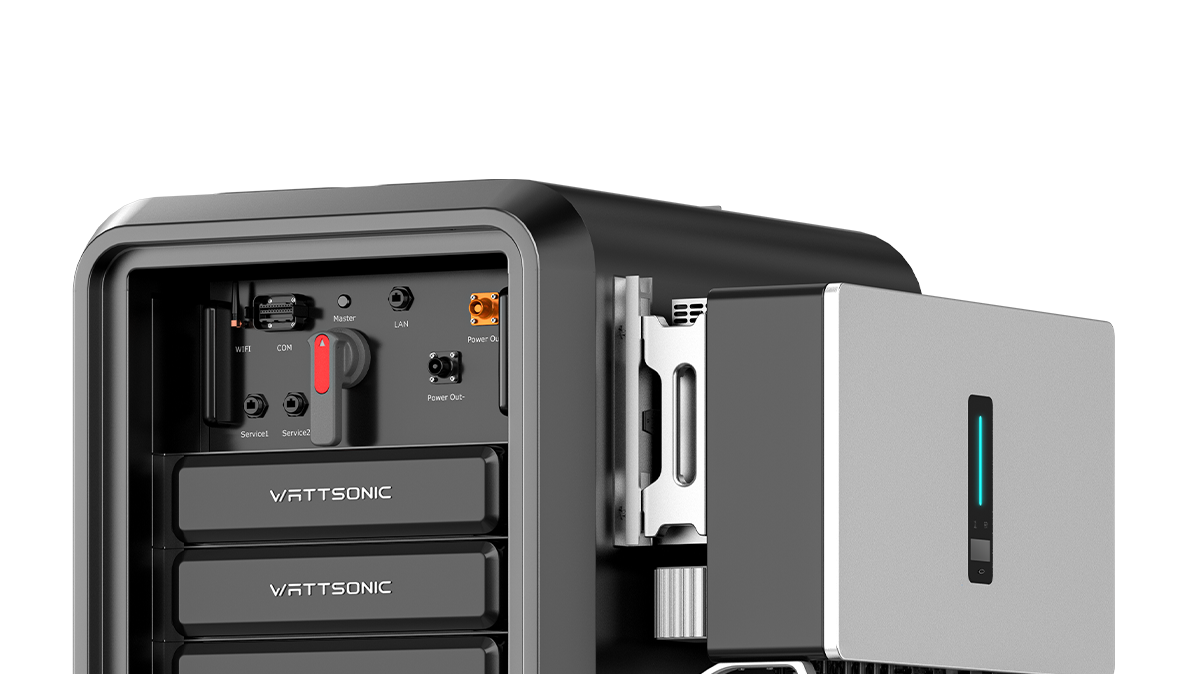
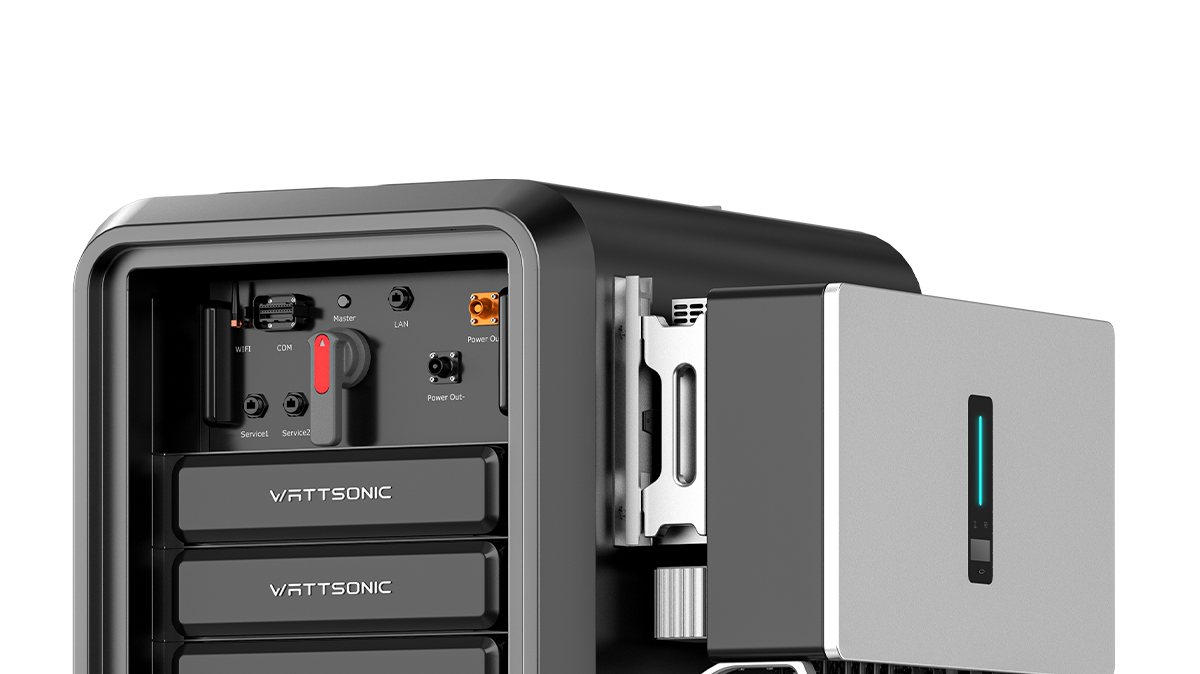
-
Master BMS
-
Battery Module
-
Three Phase
Commercial Hybrid Inverter

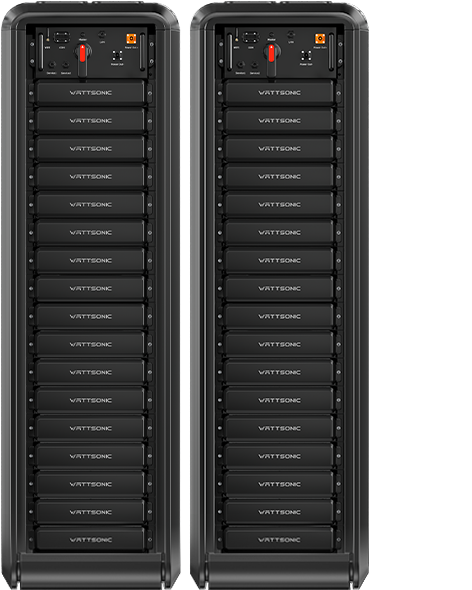
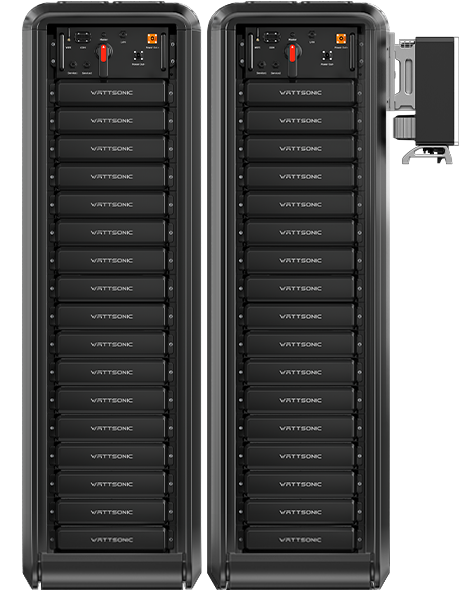
Large capacity
together with large flexibility
-
Effortless and Fast Installation
-
Unmatched scalability for various energy needs
-
Diverse integrations for lower energy bills
-
Optimize energy with WattDesk Cloud management
-
Innovative running modes
Massive Parallel Capacity, Unlimited Flexibility
-
65.2 kWh
for a single battery cabinet
-
Max. 326 kWh
Up to 5 cabinets in parallel for greater capacity
-
10 inverters
Support up to 10 inverters in parallel Inverter Scalability
Effortless Installation, Perfect Fit
Wattsonic provides everything you need for quick, hassle-free installation with pre-packed connectors, cables, and accessories—just plug and play. Its wireless design minimizes installation effort, ensuring a smooth setup every time.
Master BMS
Innovative BMS Control
AI-driven Battery Management Systems (BMS), combined with the robust WattDesk Cloud platform, provide a groundbreaking solution for precision and efficiency.
The BMS incorporates self-adapting operational strategies, optimizing energy distribution, ensuring cell-level balancing, and dynamically responding to changing conditions to enhance system longevity and safety.
Meanwhile, WattDesk delivers real-time insights into critical metrics such as cell voltage, temperature, and state of charge, enabling intelligent management and predictive maintenance for maximum performance and reliability.
-


Dynamic Long-Term Balancing with AI Assistance:
Tracking critical metrics such as cell voltage, temperature, state of charge, and health. -


Automatic Alerts & Remote Firmware Updates:
Reducing downtime and on-site costs -


Comprehensive Data Insights Powered by BMS:
Offering 24-hour real-time data visibility into every aspect of battery performance, updated every second*.
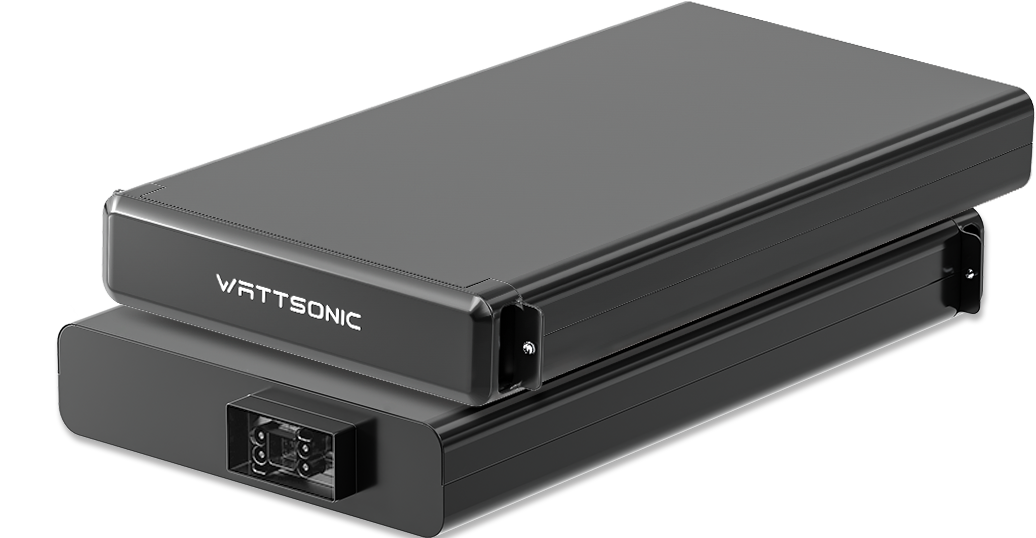
Battery Module
Wireless Power, Seamless Control
The Wattsonic Li-HV 3.84 kWh battery features an integrated connector design, offering a fully wireless solution for enhanced convenience. The cable-free setup simplifies installation, making it even easier for you. With the advanced BMS, you can easily monitor the entire system and achieve cell-level balancing. Plus, enjoy the industry-leading 10-year warranty or 8,000 cycles at 90% DOD, ensuring long-lasting performance and peace of mind.
Three Phase Commercial Hybrid Inverter
Better than pro
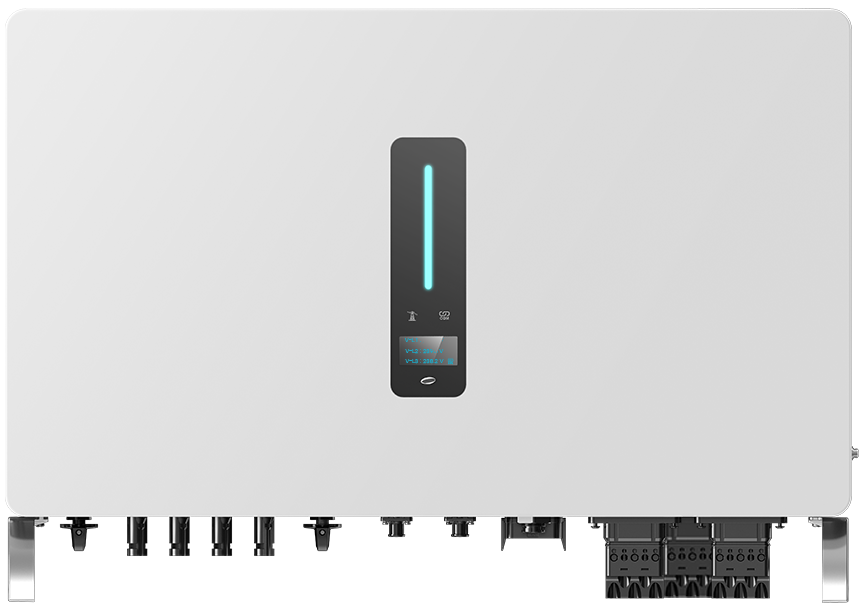
Wattsonic professional three phase commercial hybrid inverter offers incredible power and capacity. With 64G local data storage, you can record full life data. Also, there are multi external communication method are available: Wi-Fi, LAN, GPRS, RS485. Now, you don't have to personnally debug the equipment, remote commissioning or monitoring and firmware update are all optional.
-


Easiy Wifi Configuration via App
-

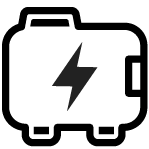
Support for Diesel Generator Integration
-

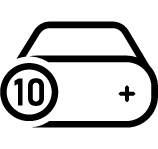
Max. 10 Units in Parallel Supported
-


Smart Heating Pump (SG Ready function) integration
-

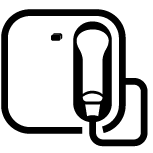
Smart EV Charger system integration
-


Customized running modes for varied energy needs
Integrated smart EMS support various power applications
Multiple customizable running modes
-
General Mode
-
Peak Load Shifting
-
UPS Mode
-
Economic Mode
-
Off-grid Mode
-
In this working mode, when the power from the PV array is sufficient, PV power will supply the loads, battery, and grid in the order of loads first, battery second, and grid last.
(You can set the power to the grid to 0W when the local grid doesn’t allow inverter power to feed to the grid).
When the PV power is insufficient, the battery will discharge to supply loads, and the grid will join in if the battery is not enough to supply loads.
-
Set the maximum power Pmax (kVA) contracted with the grid.
When the load consumption is less than the Pmax, the PV will charge the battery first, and the grid supplies the load. When the battery is full, PV will supply the load together with the grid, but the battery doesn't.
When the load consumption exceeds the Pmax, the inverter will take power from the battery and PV to supply power to the load to compensate for the power that exceeds the Pmax.*To realize the “Peak load Shifting” function, the load power that exceeded Pmax has to be within the inverter max output power, otherwise, the inverter will only output the max power which allowed.
-
In this working mode, the inverter will use the power from PV or grid to charge the battery until it is fully charged, and as long as the grid is there, the battery won’t discharge.
When the grid fails, power from PV and battery will supply loads connected on the back-up side (UPS).
-
In this working mode, you can set charge/discharge power and time in the App, inverter will use the power from PV or grid (whether to use can be set in the App) to charge the battery in the predetermined period.Inverter will use power from PV and battery to supply loads in the predetermined period and the insufficient part will be supplied by the grid.
-
In the purely off-grid mode, power from PV will supply the back-up loads first and then charge the battery if there's surplus power.When the power from PV isn’t enough, the battery will discharge to supply back-up loads together with PV.
Enhance with WattDesk Cloud Management
WattDesk is a powerful monitoring and control tool, providing real-time data access and remote management. It also serves as an open communication channel for quick problem-solving, ensuring flexible operation via app or desktop.
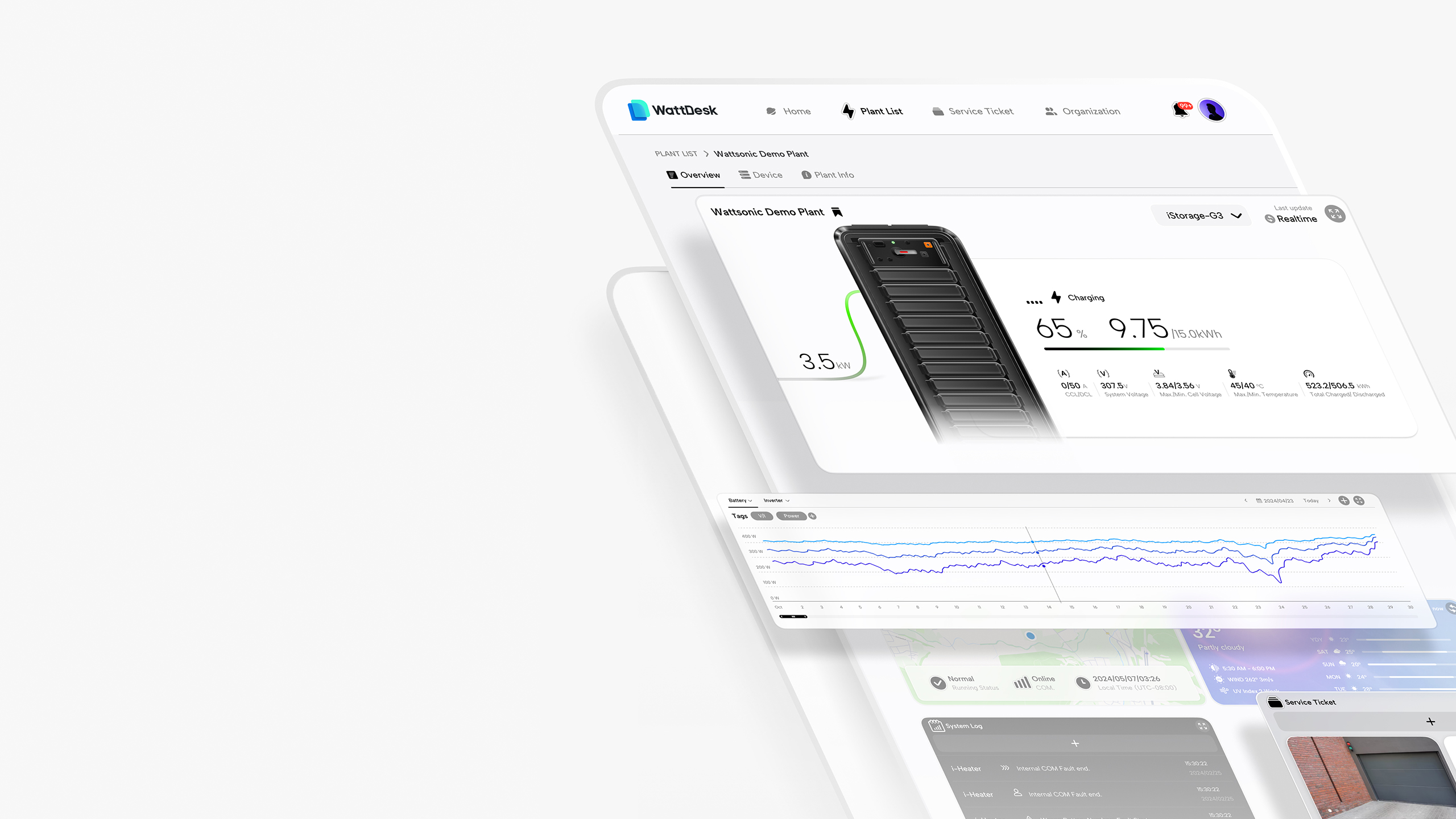
All essential data here
|
Battery_Nominal Voltage/Capacity per Module |
38.4V/3.84KWH |
|
Battery_Expand Capability |
String:Max. 1000V[20*3.84kWh],Optional 1500V[34*3.84kWh] |
|
Battery_DOD Recommended |
90% |
|
Inverter_Max. Input Power (kW) |
37.5-75 |
|
Inverter_No. of MPP Trackers |
4 |
|
Inverter_Rated Output Power (kW) |
25.0-50.0 |
-
-
Battery_Nominal Voltage/Capacity per Module
38.4V/3.84KWH
-
Battery_Expand Capability
String:Max. 1000V[20*3.84kWh],Optional 1500V[34*3.84kWh]
-
Battery_DOD Recommended
90%
-
-
-
Inverter_Max. Input Power (kW)
37.5-75
-
Inverter_No. of MPP Trackers
4
-
Inverter_Rated Output Power (kW)
25.0-50.0
-
Frequently asked questions
-
There is a large power fluctuation on battery charge/discharge.
Check the following items:
1.Check if there is a fluctuation on load power;
2.Check if there is a fluctuation on PV power on Wattsonic Portal.If everything is ok but the problem persists, please contact Wattsonic local technical service center.
-
SOC changed after restart the system.
When restarting the system, SOC only depends on the battery voltage. After a whole charging and discharging process, SOC will be accurate.
-
The user manual is lost.
Please go to the download center of Wattsonic official website to download the relevant type of Online user manual. If you can’t download, please contact Wattsonic technical local service center.
-
Some accessories are missing.
If there are any missing accessories during installation, please check the accessory list to check the missing parts and contact your dealer or Wattsonic local technical service center.
-
The inverter doesn’t work or the screen has no display.
Please check if there is DC power from PV panels, and make sure the inverter itself or external DC switch is on. If it is the first installation, please check if the "+” and "-" of DC terminals are connected inversely.
Get in touch
Wattsonic headoffice
Newsletter
Get latest trends and Wattsonic news.













